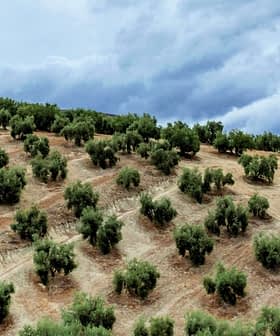A hatchet still hovers over high European Union subsidies paid to farmers in world olive oil capital Andalusia but the European Parliament last week gave them some hope of easing the imminent blow.
In a full sitting, Parliament effectively backed a heavily amended draft of the new farm policy proposed by the European Commission, with measures making it easier for olive oil farmers to get aid in times of low prices and giving producer organizations more clout in the food chain, including scope to manage supply and negotiate better prices without falling foul of competition law.
One of the amendments most welcomed by the sector in Spain will help cushion a big drop in direct income support for its farmers under the Common Agricultural Policy (CAP) for 2014 – 2020.
More than 280,000 farmers in Andalusia receive annual amounts under the EU‘s current “single payment” schemes and half of the total allocation there goes to the olive oil sector. The average per hectare in the region is €571 but rises to €690 in olive oil epicenter Jaén.
Meanwhile the average for Spain is just €346 and for the EU-15 (first 15 EU member countries) €371, but could fall to €245 and €250 – 300 respectively under the new policy, the Universidad de Jaén estimates. (1)
Fairer, greener system sought
That’s because as part of a “fairer, greener” CAP, the Commission wants to replace these schemes — prone to discrepancies in payment levels between farmers, regions and EU countries — with a new one moving to a flat rate per hectare nationally or regionally by 2019.
Furthermore, EU countries would have to reserve almost a third of their funding allocation to top-up these payments for farmers who undertake three “green” measures: maintain permanent pasture, cultivate at least three crops, and maintain an “ecological focus area” of at least 7 percent of their farmland.
Fear of funding dilution
At the same time, in 2014 there will be a new count of how many hectares of farmland are potentially eligible for the payments and changes to the definition of the kinds of farmland that qualify.
Spain says its total of eligible hectares will greatly increase — from 4.5 million to up to 6 million in Andalusia alone — but its funding envelope won’t and thus current payment entitlements would be watered down even more.
But under the amendment passed by Parliament, countries facing an increase of more than 45 percent in their total of eligible hectares will have the flexibility to limit those actually allocated payments.
Juan Corbalán, Brussels delegate of Spanish Agri-food Cooperatives, told Olive Oil Times the amendment was designed to reduce the trauma for production areas that had been receiving big support, such as olive oil, cotton, rice and cereals.
If coverage expanded to include many other producers (such as to livestock farmers for pastures) they could all end up getting “€100 – 200/ha, which is nothing,” he said.
Concerns about green measures
Spain has so far unsuccessfully lobbied for another concession — to have olive plantations treated as permanent cultivation and qualify for the full green payment without having to meet the Commission’s three requirements, such as setting aside 7 percent of their land for ecological purposes.
Italian Social Democrat MEP and Agri committee chairman Paolo De Castro had raised concerns about this green measure from the outset of negotiations back in 2011. “How can I…explain to people who produce olive trees that they have to reduce by 7 percent? Do they have to cut their trees down? I don’t think it’s the correct way to go,” he said.
But while last week Parliament slashed the target to an initial 3 percent, it rejected various amendments intended to give countries flexibility to grant exemptions.
Hopes for deal before July
Last week’s vote paved the way for negotiations with EU member states via the Council of EU Ministers, which hopes to finalize its negotiating stance this week. A final deal will then have to be reached between representatives of Parliament, the Council, and the Commission, with the goal of an overall agreement by the end of June.
But even then Spain’s olive oil sector won’t know its full fate under the new CAP until funding distribution is decided at national and regional levels.
And anyway, next year will be a transition year. With the EU’s next long-term budget also still to be agreed on, the Commission has acknowledged it won’t be able to fully implement the new direct payments scheme in time for 2014.
Spain’s overall CAP funding to increase
Agustín Rodríguez, general secretary of the Andalusia branch of the UPA, which represents small-scale farmers, said amid a likely 2.6 percent cut to funding for the new CAP, Spain had been relatively lucky that its overall package was actually set to increase 1.2 percent, to about €44 billion over six years. (2)
However, while Spain’s national and regional funding envelopes will thus not diminish, the UPA says the change to flat payments for farmers could devastate Jaén, a province where olive oil generates 80 percent of jobs, 95 percent of groves are traditional and where production this season is down 80 percent on last year.
Farmers will take to the streets in their tractors next month if help is not forthcoming, Rodríguez warns.
References:
1. “Implications of the PAC 2014 – 2020 for the Olive Oil Sector” (in Spanish, Universidad de Jaén)









